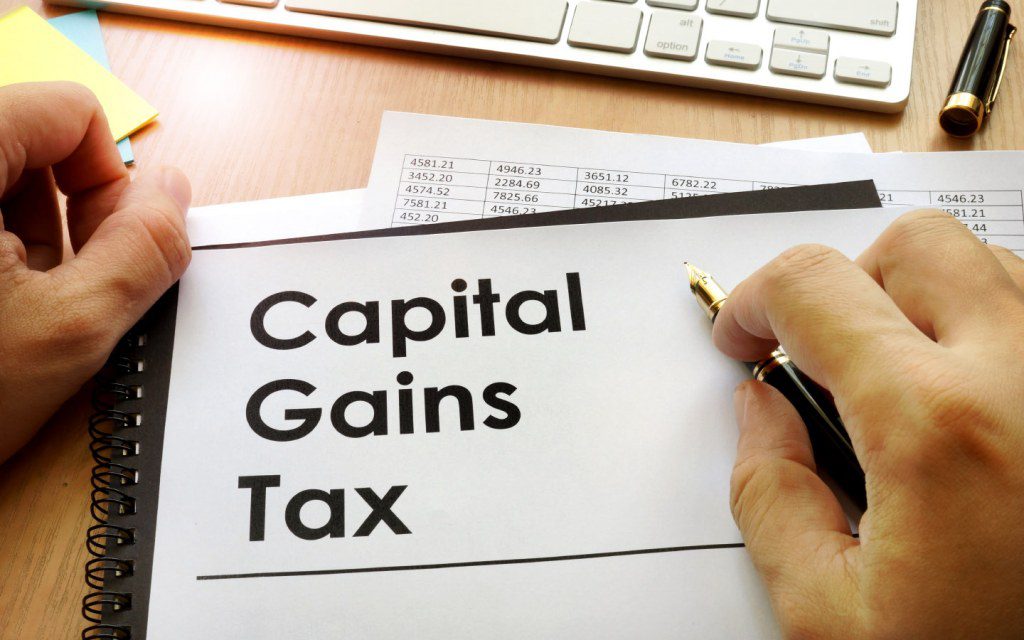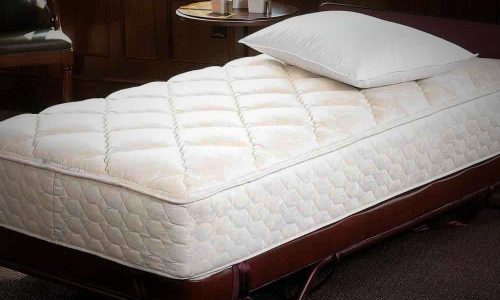You want to make a good profit when you sell your house. Capital gains tax could be a problem. You could be subject to a significant tax if your home’s value has increased significantly.
There are many ways to reduce or avoid capital gains tax on a sale of your home, so you can keep as much money in your pocket. This is everything you need to know.

What is the capital gains rate?
Capital gains taxis a tax due on any profit, also known as capital gain, you earn on assets or investments when they are sold. This is done by subtracting the asset’s purchase price or original cost (the “tax base”) from the final sale price.
Special rates are available for long-term Capital gains on home sale, which is assets that have been owned for more than a year. Based on your income, the long-term capital gains tax rates for certain types of special assets, such as collectibles, are 15%, 20%, and 28 percent.
Real estate, including residential real estate, counts as a taxable asset. Gains from the sale of a home must be reported to IRS. You calculate the amount due and then pay it when you file your tax return for the year in which the property was sold.
Although the rates are generally lower than those for ordinary income taxes, capital gains tax can still add up on big-ticket assets like homes, which is often the largest single asset most people will own. Capital gains tax directly affects your property’s value as well as any increase in that value. You could be able to get a substantial taxable gain if your home appreciated significantly after you purchased it.
What is the capital gains tax on real estate?
It can be difficult to calculate capital gains tax in real property. There are many factors that affect the tax rate.
- Your income tax bracket
- Your marital status
- How long have you lived in the house?
- If the house was your primary residence, secondary residence, or investment property
BankrateInsightIf a property or house is sold within one year, short-term capital gains are taxed as ordinary income. This could be up to 37 percent. The 15 and 20 percent rates are used to tax long-term capital gains that you have owned for more than one year, depending on your income tax bracket.
Notice: Taxes are only applied to the profit. Your profit would be $75,000. If you bought a house five-years ago for $150,000, and then sold it today for $225,000. This is an example because there are deductions that you can take — qualifying home improvements, closing costs — which would reduce your net profit. The $75,000 profit would be subject to capital gains tax.
If your 2022 tax year taxable income is $41,676 to $459,750 for a single filer, and $83,351 to $517,200 for married filing together, then you would pay 15% on the $75,000 profit or $11,250.
The IRS offers home sellers many ways to reduce or avoid capital gains taxes. This is especially true if the property being sold is their primary residence. If you meet certain conditions, you can exempt certain amounts of the profit, up to $250,000, or $500,000 depending on your filing status, from tax. This is how it works.
What is the capital gains tax on rental properties?
Rental properties do not have the same tax exclusions that a primary residence.
Depending on your income and filing status, you might have to pay 15-20 percent long-term capital gain taxes on the total profit. In certain cases, you may have to pay up to 25% if you had previously claimed a deduction for depreciation on the property.
You should try to stretch ownership for at least 12 month if you intend to rent out a property that you haven’t owned for more than one year. Otherwise, it will be treated as ordinary income. There is no ceiling on short-term capital gains taxes. You may be subject to a tax of up 37 percent.
How to avoid capital gains taxes on a home-sale
Capital gains taxes can have a significant impact on your bottom line. There are many ways to lower your tax bill or avoid capital gains taxes when you sell your home. It all depends on your property type and filing status. There are a few ways to get around capital gains taxes when you sell your house.
You can avoid a capital gains taxes on your primary residence
If you are single and filing jointly, you can sell your primary residence to avoid capital gains tax on the first $250,000. This exemption is not available more than once every two years. It can, however, make the capital gains tax void.
Let’s suppose a single filer bought a house for $250,000 and lived there for three years. Then, they sell it for $400,000 three more years later. Their profit is $150,000. This is exempted from capital gains tax because it falls below the $250,000 threshold for gains.
There are some conditions. IRS requires that you show proof that the property was your primary residence to qualify it as such. This will be required:
- The home was yours for at least 2 years.
- The property was your primary residence for at most two of the five years immediately prior to the sale.
There is some flexibility in the way that the rules are applied. It doesn’t matter if you live in the house for the full time of ownership or if you have lived there consecutively for at least two years. You could, for instance, buy the house and live there for 12 months before renting it out to others for a few more years. Then, you can move in as your primary residence for another 12 month. You are eligible for capital gains tax exemption as long as the property was your primary residence for at least 24 months during the five years preceding the sale. For more details to visit website americantaxservice.org
Capital gains tax is not payable on rental properties or other property.
To reduce your tax liability if you have additional property you want to sell, it is important to plan ahead. There are many ways to reduce capital gains tax.
Setting up the rental property as your primary residence
It is possible that the value of an investment property you plan to rent has risen in value. To avoid capital gains, it may be a smart idea to live in the rental for at most two years before you convert it to your primary residence. You can’t exclude the depreciated portion of the rental property.
Primary residency status will be lost on your main residence. However, it can always be regained by moving back in after the sale. You can re-establish primary residence and be exempt from capital gains exclusion as long as the main house is not sold for more than two years.
1031 Exchange
A 1031 exchange is also available. It is also known as a “like-kind exchange”. This works only if the investment property is sold and the proceeds are used to purchase another property. This basically means that you are putting off capital gains taxes indefinitely. As long as the proceeds of the sale are used to purchase another investment property, capital gains taxes can be avoided.
Opportunity zone
The 2017 Tax Cuts and Jobs Act created Opportunities Zones – areas in the country that have been designated as economically disadvantaged. You’ll receive a tax basis increase (your original cost) if you invest in a low-income community. Any gains made after 10 years are exempt from tax.


